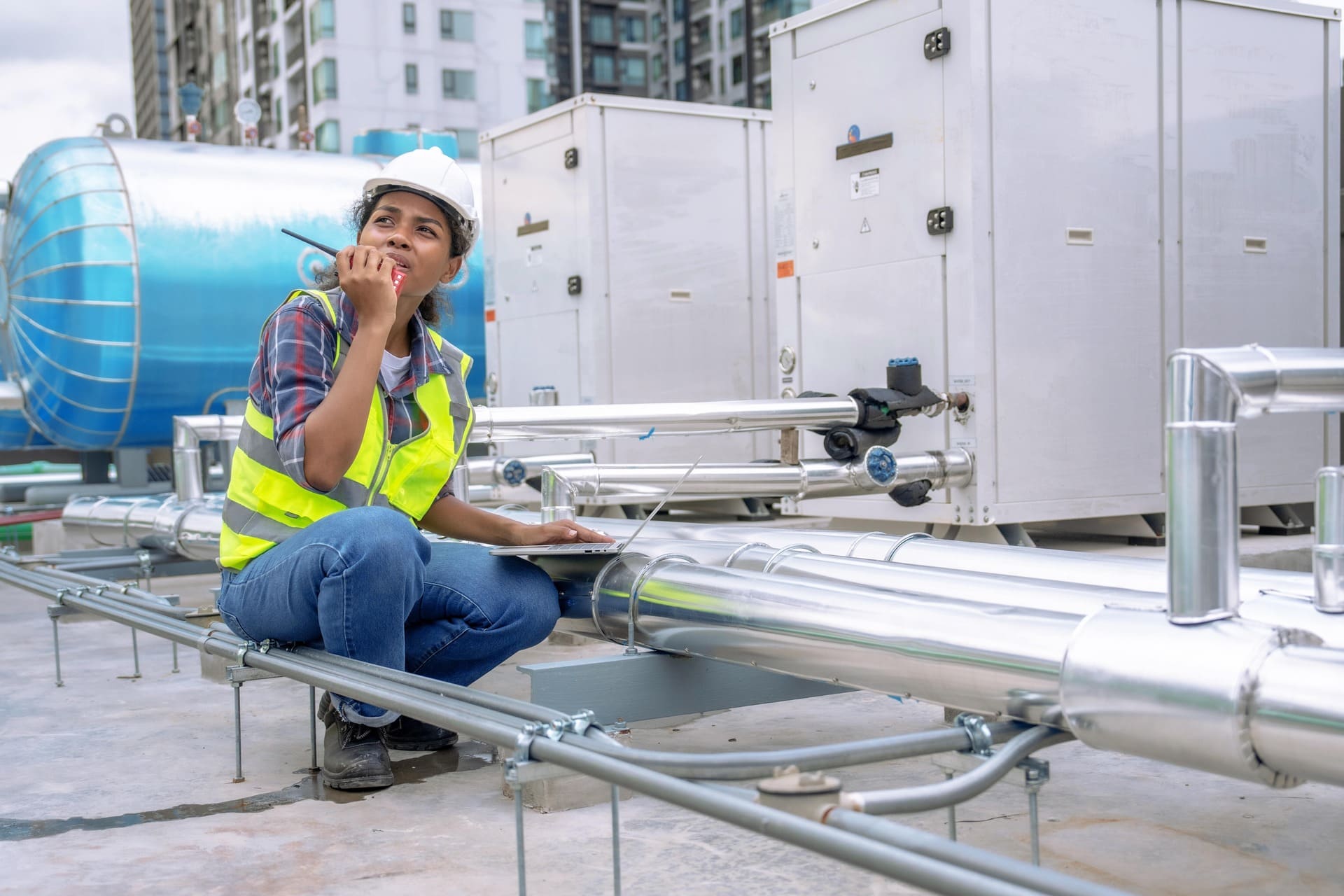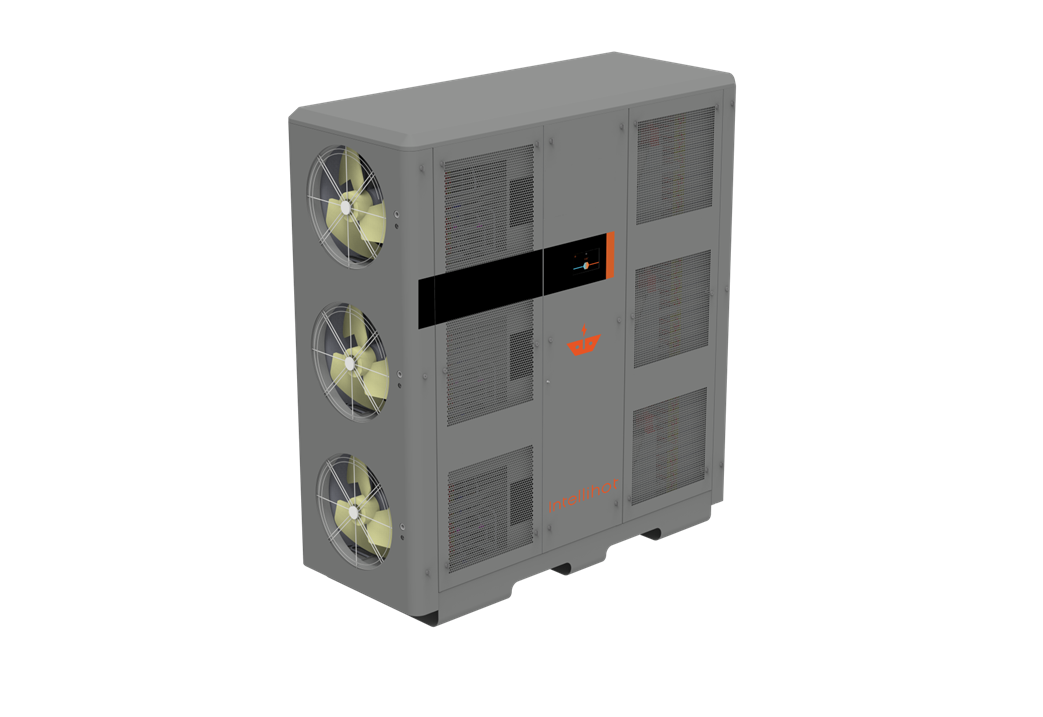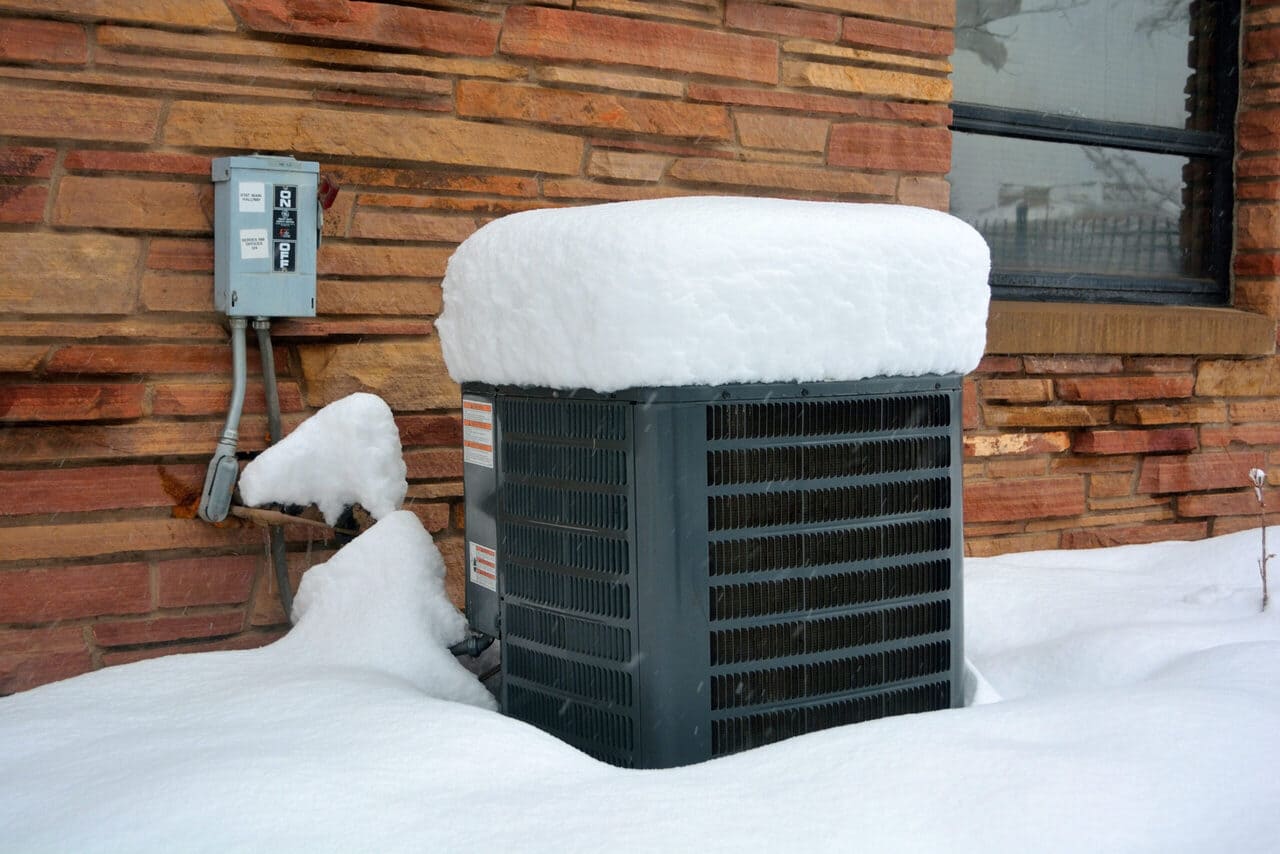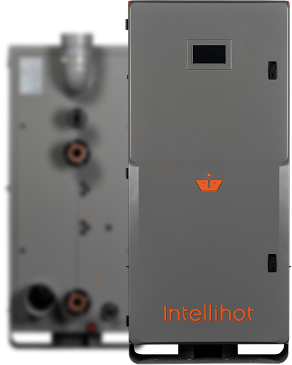

Due to the banning of natural gas in commercial buildings by several state governments, heat pump water heaters are starting to appear as the future of water heating. They are on path to replace standard water heating systems due to a push towards electrification. While they come with a variety of pros over typical gas-powered water heaters/standard electric resistance water heaters, there are also various pitfalls that engineers and plumbers should be aware of. This article will begin by covering some of the pros of heat pump water heaters briefly. However, the focus of the article will be on the pitfalls of current heat pump water heating technology.
We will cover 4 pitfalls of heat pump water heaters and how to best avoid them. However, being the leaders of innovation in the heat pump water heater industry, and the manufacturer of the world’s first tankless heat pump water heater, we have identified a total of 13 pitfalls that plumbing engineers should be aware of. You can avail the full, detailed list of heat pump water heater pitfalls and how to avoid them by accessing our free eBook.
There is a reason that heat pump water heaters are being considered the future of water heating technology. Here are three positive aspects about heat pump water heaters. You can read this blog post to gain a comparative understanding of heat pump water heaters vs gas-powered water heaters and electric resistance water heaters.

Although heat pump water heaters are touted as revolutionary new products, they are not a form of immature technology. They have been around since the 1920s. Although the older models of heat pump water heaters were not as effective due to technical limitations, continuous research and development have made them significantly better alternatives. Watch the following video to see the advancements that Intellihot has made:
Heat pump water heaters work by transferring heat energy from one location to another. This proves to be a much more eco-conscious alternative to the burning of natural gas/propane, or the use of electric resistance heating elements in order to generate the energy needed to heat water. Hence, by moving heat energy from one source to another, heat pump water heaters simply utilize the heat available in other sources instead of generating any. These sources depend on the type of heat pump water heater. Air-source heat pump water heaters use heat from ambient air while geothermal heat pump water heaters use energy from the ground.
This methodology can be especially beneficial for properties like restaurants. If a heat pump water heater was to be installed in a restaurant’s kitchen, it would move the heat from that room and provide a space-cooling effect to the hot surroundings.
Since heat pump water heaters essentially transfer heat energy from one source to another instead of generating it, they consume lesser energy than their output. Hence, they can have efficiencies over 100%. This can help save significant amounts of energy and costs.
Although heat pump water heaters can prove to be an innovatively effective replacement of standard water heating methods, there are various pitfalls associated with the current technology that one should be aware of. These pitfalls, if not addressed correctly, can lead to installation hiccups, routine maintenance headaches, and even losses. Let’s look at 4 of the 13 pitfalls that we have identified when it comes to heat pump water heaters. You can access the complete and detailed list of all the pitfalls in our free eBook below.
Unfortunately, heat pumps hardly work at their stated efficiency. There are a lot of external factors that affect a heat pump water heater’s efficiency (as measured by Co-efficient of Performance or COP). Changes in ambient temperature, hot water demand, ground water temperature, and grid response must be taken into account when sizing heat pump water heaters and calculating their operational expenses.

Unfortunately, heat pumps hardly work at their stated efficiency. There are a lot of external factors that affect a heat pump water heater’s efficiency (as measured by Co-efficient of Performance or COP). Changes in ambient temperature, hot water demand, ground water temperature and grid response must be taken into account when sizing heat pump water heaters and calculating their operational expenses.
Heat pump water heaters employ complex plumbing frameworks with several pieces of equipment like multiple pumps, stratified hot water tanks, swing tanks, heat exchangers, mixing valves, as well as complex piping and routing. This makes the task of installing a heat pump water heating system complicated and difficult to get right in the first attempt.
Due to Pitfall #1 (Performance and Sizing Uncertainties) and Pitfall #2 (Cold Weather Performance and Defrost Requirements), heat pump water heaters end up costing more than their advertised/projected amount. One may be forced to oversize the heat pump water heaters to negate reduced performance in colder areas/winter months. Additionally, most heat pump water heaters available currently are not modular in design. Hence, they lack redundancy. Project owners and plumbing engineers may be forced to double down on equipment to add redundancy, increasing costs even more.

2900 W Main St.,
Galesburg, IL 61401
General: 1-877-835-1705
Product Support (24/7): 1-866-692-6791
